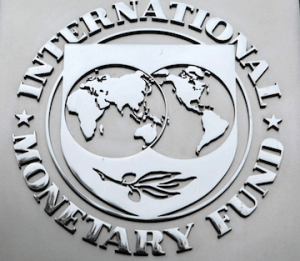Ghana will return to IMF as country’s public debt hits GH¢204b – Minority
 The Minority in Parliament has said the nation would return to the International Monetary Fund (IMF) for a bailout given the financial challenges confronting the country and the high public debt.
The Minority in Parliament has said the nation would return to the International Monetary Fund (IMF) for a bailout given the financial challenges confronting the country and the high public debt.
They said the increase in the country’s public debt from GH¢120 billion as of December, 2016 to GH¢204 billion as of June 2019 and the declining foreign reserve would compel government to go back to the IMF for support.
“It would not come as a surprise if Ghana seeks a bailout from the IMF less than two years after exiting a similar programme,” the Minority said.
Mr Cassiel Ato Forson, Ranking Member of the Committee on Finance, speaking at a media encounter in Parliament on Tuesday, said the encounter was to state the Minority’s assessment and reaction to the Mid-year Budget Review presented to Parliament by the Finance Minister earlier in the week.
Mr Forson said the mid-year budget clearly showed that the public finances are in dire straits and the resort to additional tax measures is an indication of the troubling times.
He described as populist the policies adopted by President Akuffo-Addo, adding that they have come full cycle and throwing all the gains made from the fiscal consolidation prior to the coming into office of the NPP government, out of gear.
“It has become obvious that the NPP has no intention of keeping their promises when it comes to borrowing and the public debt, the imposition of taxes and fuel price adjustments.”
Mr Forson said the mid-year budget presented by the Finance Minister portends difficult times for all Ghanaians.
He said it is unfortunate that less than a year after Ghana exited the IMF programme, the nation’s public finances have been severely derailed.
He urged the Akufo-Addo government to change course or they would plunge the economy into much more bigger challenges.
Mr John Jinapor, former Deputy Minister for Power, said the Minority intends to oppose government’s increment for the petroleum sector levies.
He said there is no justification for the imposition of the new levies, arguing that the reasons given for the adjustments were untenable.
“You cannot be against Energy Sector Levy Act (ESLA) two years ago and all of a sudden be a proponent,” he said.
Mr Jinapor said government has failed to account for an amount of GH¢900 million out of the GH¢1.5 billion ESLA levies leaving only GH¢600 million in the account.
He said under the ESLA increments, an average increase of 25 percent was imposed on the Power Generation and Infrastructure Support Levy, Road Fund Levy and the Price Stabilization and Recovery Levy.
He said once the new levies come into effect, consumers would be paying almost GH¢1 on a gallon of petrol and diesel as well as GH¢1.7 on 14kg cylinder filled with gas.
Source: GNA
